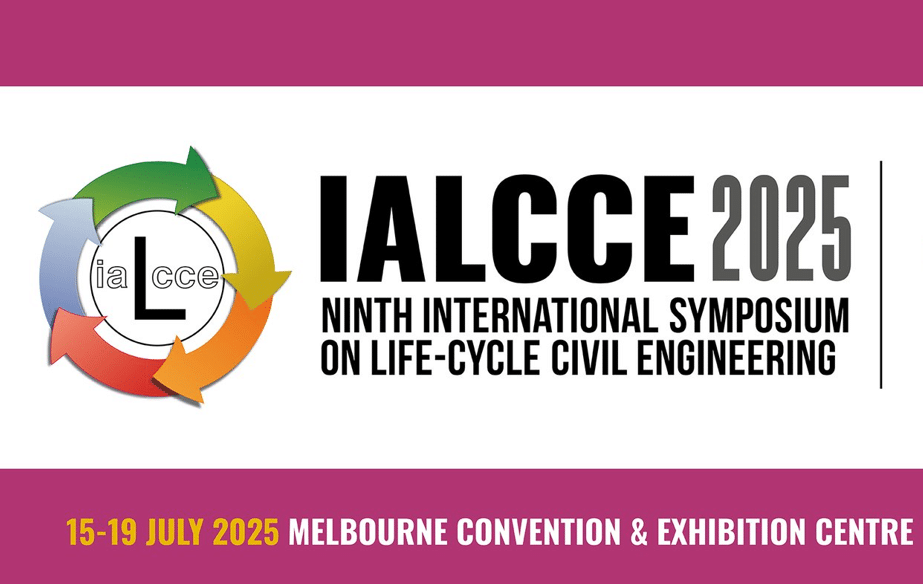The 9th International Symposium on Life-Cycle Civil Engineering (IALCCE 2025) to be hosted at RMIT, Melbourne from 15 – 19 July 2025.
Topics and Themes of IALCCE2025:
1. Lifecycle Carbon Emission Metrics
-
Methods of measuring carbon emissions for civil engineering
-
Carbon emission in whole life of infrastructure
-
Carbon emission in each stage of lifecycle
-
Carbon neutrality for civil engineering works
-
Carbon sequestration techniques
-
Carbon capture, utilisation and storage (CCUS)
-
Embodied and operational carbons
-
Life cycle inventory databases of carbon emissions
-
Carbon emission benchmarks
2. Lifecycle Design for Structures and Infrastructure
-
Lifecycle based methods for planning and decision making
-
Design for safety
-
Design for longevity
-
Design for resilience
-
Design for disassembly
-
Circular economy in LCA
-
Service life extension techniques
-
Low carbon materials
-
Prefabrication techniques
3. Lifecycle Assessment of Civil Infrastructure
-
Methods for structural reliability
-
Time-dependent reliability methods
-
Uncertainty analysis and modelling
-
Assessment of real world structures
-
Material and structural deterioration
-
Assessment of severe natural disasters
-
Assessment of various failure modes
-
Effects of climate change
-
Risk acceptance criteria
4. Lifecycle Management of Civil Infrastructure
-
Field testing and proof loading
-
Structural health monitoring
-
Inspection and evaluation
-
Maintenance strategies
-
Rehabilitation techniques
-
Strengthening and repairs
-
Human factors in lifecycle civil engineering
-
Whole life care of infrastructure
-
Risk management of civil engineering works
5. Lifecycle Optimisation of Civil Infrastructure
-
Mathematical optimization
-
Structural optimisation
-
Optimization techniques for decision making
-
Optimisation of construction processes
-
Optimisation of end-of-life options
-
Lifecycle costing models
-
Risk, carbon emission and cost optimisation
-
Evolutionary procedures
-
Mutil-objective optimization
6. Lifecycle Digital Tools for Civil Engineering
- Digital twins for performance monitoring
-
BIM, AR/VR for design and construction
-
Artificial intelligence methods
-
Soft-computing methods
-
Machine learning and its applications in LCA
-
Sensor technology
-
Internet of things techniques
-
Big data and cloud computing techniques
-
Robotic and aviation-based techniques

